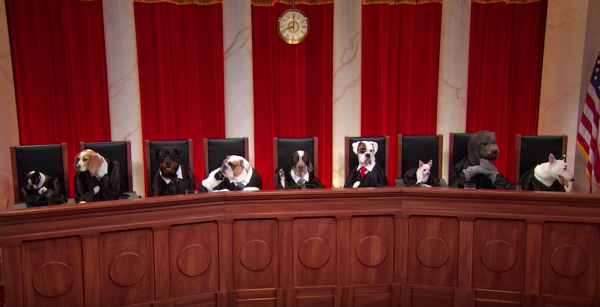
Occasionally, we touch on subjects that have less to do with purebred dogs, and more to do with dog ownership (because one impacts the other). Earlier this month, an Ohio judge hearing a custody dispute ruled that an estranged couple’s dog was property, and not a child over whom the court should spend time disputing custody. As valued as our dogs are to us, and as “warm and fuzzy” as it makes some of us feel to consider ourselves our dogs’ “guardians,” and not their “owners,” here is why the judge’s ruling is better for the dog: The term “owner” places legal responsibility on people to care for their dogs, while the term “guardian” shares our decision-making rights and responsibilities with courts and other third-parties who may never have laid eyes on our dogs to make claims “on the animal’s behalf.”
We caution that we are not lawyers, but our research suggests that not “owning” our dogs can limit—and even eliminate—our ability to make decisions about the best way to care for them, choose the appropriate treatments for them, and subject decisions about them to outsiders such as local government, neighbors, and other third parties. Consider this scenario: “Joe,” a dog owner, decides that his dog should be confined to a kennel rather than roaming around the backyard. Perhaps Joe’s dog is a digger and prone to getting loose. Perhaps she’s recovering from surgery and needs to rest. Under current laws, Joe has the freedom to make the choice he feels is best for his dog. If Joe were a “guardian,” instead of an “owner, however, he could risk being taken to court by a local animal rights group, a neighbor who has always hated the dog, or by family members who hate Joe and want the dog to roam the yard freely under penalty of the law, just to irritate Joe.
Changing the status of our dogs would mean a dramatic and negative change in their legal standing. Several entities, including the AVMA, have gone on record opposing a change in language. The AVMA writes, “There is no doubt that inserting the word “guardian” in place of “owner” in describing the relationship between a human and a pet would be regarded by courts as a meaningful change. Courts would then fall back on the long-established use of the word “guardian,” which is typically applied to minors. Guardianship, in legal terms, is a complex fiduciary relationship subject to court approval. It is not a status that is sought to upgrade the status or standing of an individual, but one that is used as a fallback when no natural guardian – or parent – is present.”
There is always a bigger picture to any change in legal status, and before supporting a candidate or piece of legislation that on the surface, “feels good,” think again. Rather than leave you with a “Debbie Downer” mood, watch the silent video of a canine court below just for grins.
